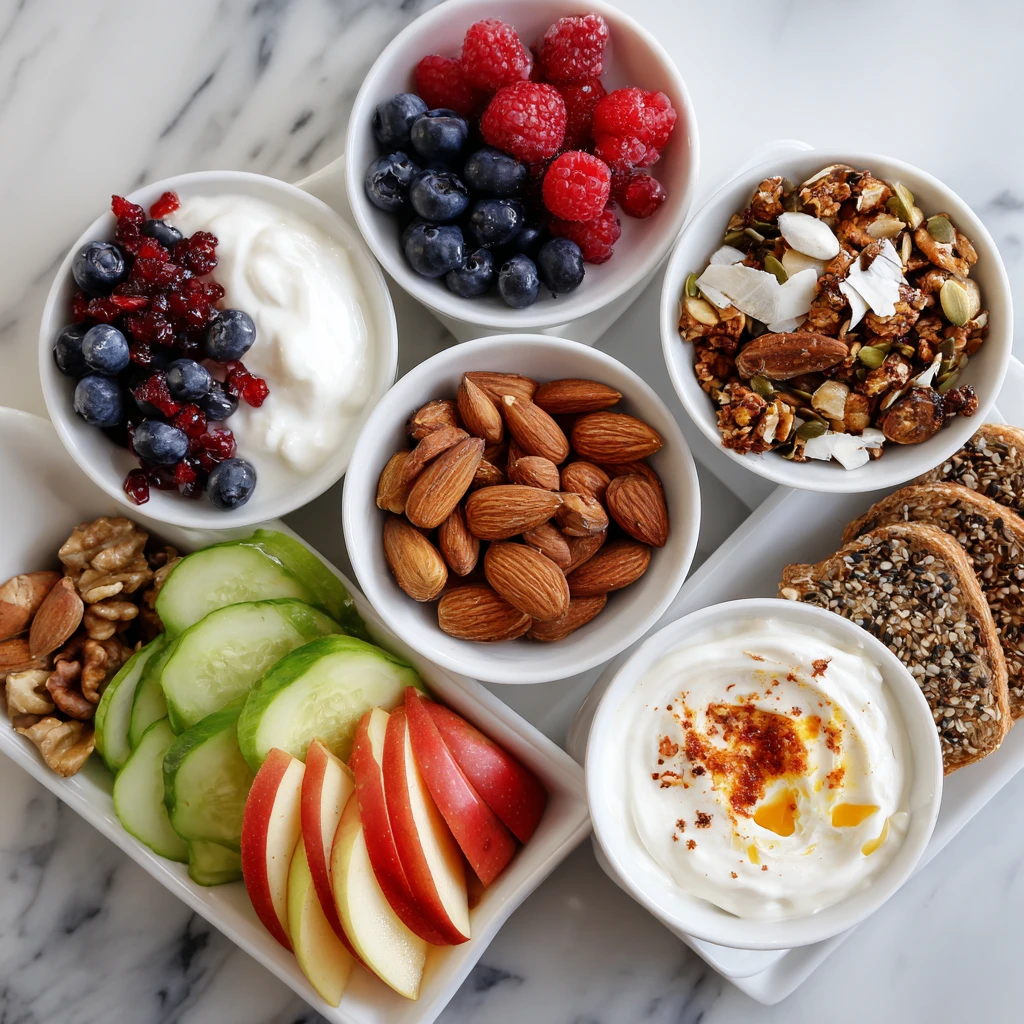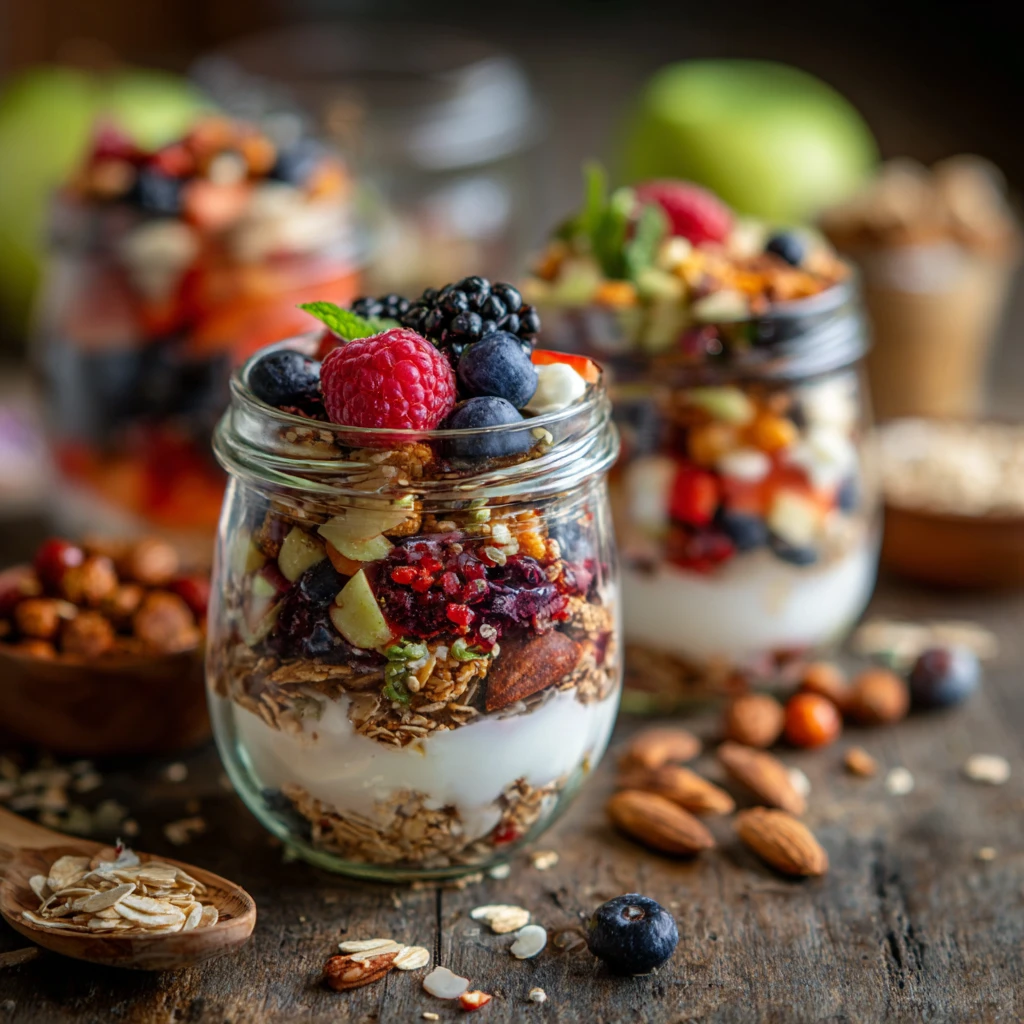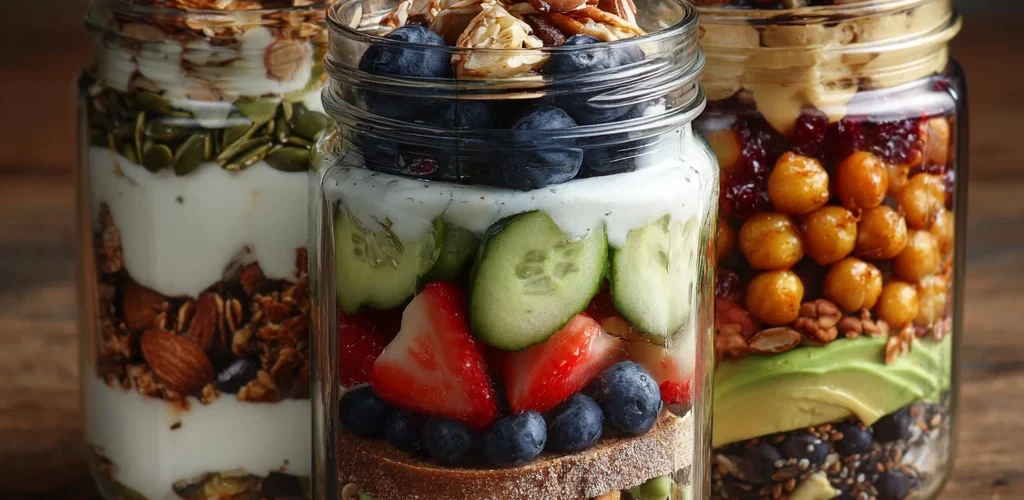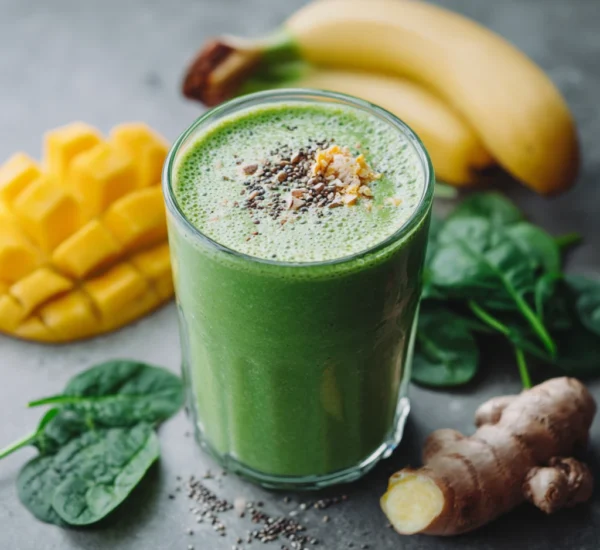Snack Habits That Support Mood Stability
Maintaining a stable mood is a crucial aspect of overall well-being. While many factors contribute to mood regulation, including sleep, exercise, and stress management, the foods we eat play a significant role. Strategically chosen snacks can provide a steady stream of energy and nutrients, helping to avoid mood swings and promoting a more balanced emotional state.

The Science Behind Mood and Food
Our brains are complex organs that require a constant supply of energy to function optimally. When blood sugar levels fluctuate drastically, it can lead to irritability, anxiety, and difficulty concentrating. Furthermore, certain nutrients, such as vitamins, minerals, and amino acids, are essential for the production of neurotransmitters like serotonin and dopamine, which play a key role in mood regulation.
The Blood Sugar Connection: Rapid spikes and crashes in blood sugar can trigger hormonal imbalances, leading to mood swings. Simple carbohydrates, like those found in sugary snacks and processed foods, are quickly broken down into glucose, causing a rapid rise in blood sugar. This is often followed by a sharp drop, leaving you feeling tired, irritable, and craving more sugary foods.
Neurotransmitter Support: Neurotransmitters are chemical messengers that transmit signals between nerve cells. Serotonin, often referred to as the “feel-good” neurotransmitter, plays a vital role in regulating mood, sleep, and appetite. Dopamine is associated with pleasure, motivation, and reward. Certain foods contain nutrients that are precursors to these neurotransmitters, meaning they provide the building blocks necessary for their production. For example, tryptophan, an amino acid found in foods like turkey and nuts, is a precursor to serotonin.
The Gut-Brain Axis: Emerging research highlights the importance of the gut microbiome in influencing brain function and mood. The gut microbiome is a community of trillions of microorganisms that reside in our digestive tract. These microorganisms can produce neurotransmitters and other compounds that can affect brain activity via the vagus nerve, a major communication pathway between the gut and the brain. A diet rich in fiber and prebiotics can promote a healthy gut microbiome, which in turn can support mood stability.
Smart Snacking Strategies for Mood Regulation
The key to using snacks for mood stabilization is to choose options that provide sustained energy, support neurotransmitter production, and promote a healthy gut microbiome.
Prioritize Protein and Fiber: Protein and fiber are digested slowly, which helps to regulate blood sugar levels and prevent energy crashes. Protein-rich snacks also provide amino acids that are necessary for neurotransmitter production. Fiber promotes satiety and helps to feed beneficial bacteria in the gut.
Limit Sugary and Processed Foods: As mentioned earlier, sugary and processed foods can lead to rapid blood sugar fluctuations, which can negatively impact mood. These foods are also often devoid of essential nutrients and can contribute to inflammation in the body, which has been linked to mood disorders.
Choose Whole, Unprocessed Foods: Focus on whole, unprocessed foods such as fruits, vegetables, nuts, seeds, and lean protein sources. These foods are packed with nutrients and fiber and are less likely to cause blood sugar spikes.
Plan Ahead: It’s easy to reach for unhealthy snacks when you’re hungry and unprepared. Take some time to plan your snacks for the week and keep healthy options readily available.
Listen to Your Body: Pay attention to how different foods affect your mood and energy levels. Everyone is different, so what works for one person may not work for another. Experiment with different snacks and find what works best for you.
Top 10 Mood-Boosting Snack Ideas
Here are ten snack ideas that can help support mood stability:
1. Greek Yogurt with Berries and Nuts: Greek yogurt is a good source of protein and probiotics, while berries are packed with antioxidants and fiber. Nuts provide healthy fats and protein for sustained energy.
2. Hard-Boiled Eggs: Eggs are a complete protein source, meaning they contain all the essential amino acids. They are also rich in choline, a nutrient that is important for brain function.
3. Apple Slices with Almond Butter: Apples provide fiber and antioxidants, while almond butter provides healthy fats and protein.
4. Edamame: Edamame is a good source of protein, fiber, and plant-based estrogen, which can help regulate hormone levels, particularly in women.
5. Dark Chocolate (70% cacao or higher): Dark chocolate contains antioxidants and compounds that can boost mood and cognitive function. However, it’s important to consume it in moderation.
6. Trail Mix (Nuts, Seeds, and Dried Fruit): Trail mix provides a good mix of protein, fiber, and healthy fats. Be mindful of the sugar content of the dried fruit.
7. Vegetable Sticks with Hummus: Vegetables provide fiber and vitamins, while hummus provides protein and healthy fats.
8. Cottage Cheese with Pineapple: Cottage cheese is a good source of protein, while pineapple contains bromelain, an enzyme that has anti-inflammatory properties.
9. Smoothie with Spinach, Berries, and Protein Powder: Smoothies are a convenient way to pack in a lot of nutrients. Use spinach for vitamins, berries for antioxidants, and protein powder for sustained energy.
10. Avocado Toast on Whole Grain Bread: Avocado is a source of healthy fats and fiber, which promotes a sense of fullness. Whole grain bread provides complex carbohydrates for sustained energy.
Lifestyle Factors Complementing Snack Choices
While strategic snacking is important, it’s just one piece of the puzzle when it comes to mood stability. Other lifestyle factors, such as sleep, exercise, and stress management, also play a crucial role.
Prioritize Sleep: Adequate sleep is essential for brain function and mood regulation. Aim for 7-9 hours of quality sleep per night.
Engage in Regular Exercise: Exercise has been shown to improve mood, reduce stress, and promote better sleep. Aim for at least 30 minutes of moderate-intensity exercise most days of the week.
Manage Stress: Chronic stress can negatively impact mood and overall health. Find healthy ways to manage stress, such as meditation, yoga, or spending time in nature.
Stay Hydrated: Dehydration can lead to fatigue and irritability. Drink plenty of water throughout the day.
Consider Supplements: In some cases, supplements may be helpful for supporting mood stability. However, it’s important to talk to your doctor or a registered dietitian before taking any supplements. Some supplements that may be beneficial include omega-3 fatty acids, vitamin D, and magnesium.
Navigating Individual Needs and Sensitivities
It’s important to remember that everyone is different, and what works for one person may not work for another. Pay attention to how different foods affect your mood and energy levels and adjust your snack choices accordingly.
Food Sensitivities: Some people may be sensitive to certain foods, such as gluten or dairy, which can contribute to mood swings. If you suspect you may have a food sensitivity, talk to your doctor or a registered dietitian.
Underlying Health Conditions: Certain health conditions, such as thyroid disorders or diabetes, can also affect mood. If you have an underlying health condition, it’s important to work with your doctor to manage your condition and optimize your diet.
Mental Health Conditions: If you are struggling with a mental health condition such as depression or anxiety, it’s important to seek professional help. Diet and lifestyle changes can be a helpful adjunct to treatment, but they are not a substitute for professional care.

FAQ: Snack Habits and Mood Stability
Q: Can snacks really affect my mood?
A: Yes, absolutely. The foods you eat, including snacks, can significantly impact your mood. Blood sugar fluctuations, nutrient deficiencies, and gut health are all influenced by your diet and can, in turn, affect your emotional state.
Q: What are some healthy snacks that are also convenient?
A: Greek yogurt cups, pre-cut vegetables with hummus, single-serving packs of nuts, and hard-boiled eggs are all convenient and healthy snack options.
Q: How often should I snack to stabilize my mood?
A: The frequency of snacking depends on your individual needs and activity level. Generally, snacking every 3-4 hours can help maintain stable blood sugar levels and prevent mood swings.
Q: Is it okay to have chocolate as a mood-boosting snack?
A: Yes, dark chocolate (70% cacao or higher) can be a mood-boosting snack. It contains antioxidants and compounds that can improve mood and cognitive function. However, it should be consumed in moderation due to its calorie and sugar content.
Q: Are there any snacks I should avoid if I want to stabilize my mood?
A: Yes, it’s best to avoid sugary drinks, processed foods, and snacks high in refined carbohydrates. These can lead to rapid blood sugar spikes and crashes, which can negatively impact your mood.
Q: Can a specific diet help with mood disorders?
A: While there isn’t a one-size-fits-all diet for mood disorders, a balanced diet rich in fruits, vegetables, whole grains, lean proteins, and healthy fats can be beneficial. Some studies suggest the Mediterranean diet or a diet rich in omega-3 fatty acids may be helpful. Always consult with a healthcare professional or registered dietitian for personalized advice.
Q: How does gut health relate to my mood and snacks?
A: The gut microbiome can produce neurotransmitters and other compounds that affect brain activity. A diet rich in fiber and prebiotics can promote a healthy gut microbiome, which in turn can support mood stability. Snack examples include yogurt with live cultures, fruits, and vegetables.



